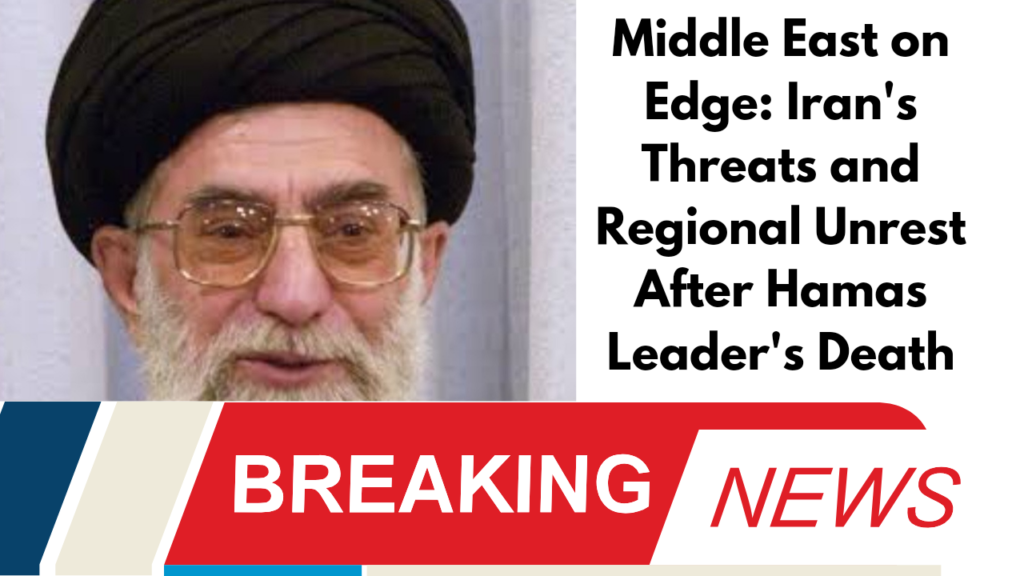A dramatic escalation of regional tensions, Iran has vowed to retaliate for the death of Hamas leader Ismail Haniyeh, who was killed in an attack in Tehran on July 31. The Iranian government has publicly blamed Israel for the assassination, leading to heightened fears of an imminent conflict that could engulf the broader Middle East.
The assassination of Haniyeh, who was attending the swearing-in ceremony of Iran’s new president at the time, has set off a diplomatic firestorm. Iran has promised revenge, and both the U.S. and Israel are bracing for potential retaliatory strikes. In response, Israel is shoring up its defenses, coordinating closely with the United States, and securing additional resources such as fuel for fighter jets and air defense systems.
In April, a U.S.-led Arab coalition, including Jordan, Saudi Arabia, and the United Arab Emirates played a crucial role in repelling an extensive Iranian drone and missile attack.
This coalition managed to intercept 99 percent of the more than 300 projectiles launched from Iran. However, four months later, with the geopolitical landscape shifting and Israel’s regional support waning, there are growing concerns about whether similar assistance will be available in the event of renewed hostilities.
The current climate of instability is exacerbated by Israeli Prime Minister Benjamin Netanyahu’s hardline stance on Gaza, including his refusal to agree to a ceasefire or negotiate the release of hostages. This has strained relations with key allies, particularly the U.S. and several Arab states. Jordan and Saudi Arabia have expressed their desire to avoid becoming entangled in a regional conflict, with Egypt also signaling its reluctance to join any military coalition aimed at countering Iranian aggression.
Military analysts are warning that if an attack occurs, it could be more extensive and prolonged than the one in April. Potential threats could come not only from Iran but also from its regional proxies, including Hezbollah, the Houthis, and militant groups in Iraq and Syria. The fear is that any confrontation could open multiple fronts, further isolating Israel and complicating its defensive strategies.
Amid these mounting tensions, regional and international responses are being closely watched. The Organization of Islamic Cooperation, meeting recently in Saudi Arabia, discussed the escalating situation, with Iran issuing stark warnings against any countries that might attempt to intervene on Israel’s behalf. Iran has accused Israel of violating its sovereignty and has declared that it will retaliate against any nations that interfere with its plans.
As the situation develops, the potential for a broader conflict remains high, with diplomatic and military maneuvers in the coming days likely to determine the next phase of this volatile crisis.











More Stories
Netanyahu Under Fire as Leaked Documents Scandal and Hostage Crisis Deepen
Mount Fuji’s Snowless Peak A Sign of Climate Change and Japan’s Cultural Icon in Crisis
Malik Mumbai’s 15 Crore Monthly Income ‘Haar Meri Jeet Apki Offer’ for WBBL 2024 Your Guaranteed Win or Refund!